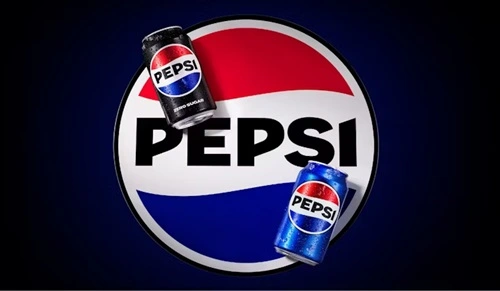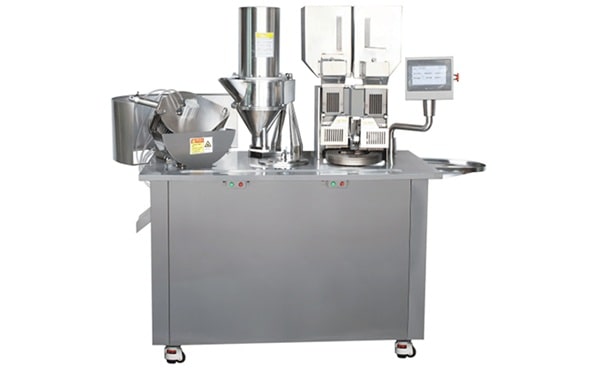Pepsi, one of the world’s leading beverage brands and the flagship product of PepsiCo, has been a household name for over a century. Founded in 1898, Pepsi has evolved from a single cola product to a global brand offering a wide range of beverages and snacks, from soft drinks to juices and energy drinks. Competing with giants like Coca-Cola and facing changing consumer preferences, Pepsi has successfully maintained its position as a top player. In India, Pepsi’s market presence is significant, but it faces unique challenges and opportunities due to health trends and competitive pressure. This SWOT (Strengths, Weaknesses, Opportunities, Threats) analysis explores Pepsi’s current market position and its future outlook in a dynamic beverage industry.

Strengths
1. Strong Brand Recognition and Global Market Presence:
Pepsi is one of the world’s most recognized brands, with a strong legacy and established consumer base. Its iconic branding, catchy advertisements, and memorable slogans like “Live for Now” resonate with audiences worldwide. Pepsi’s strong brand identity gives it an edge over new entrants and builds brand loyalty, which is crucial in the highly competitive beverage market.
2. Diverse Product Portfolio:
Pepsi’s diverse product portfolio, which includes soft drinks, juices, iced tea, energy drinks, and bottled water, allows it to cater to a wide range of consumer preferences. This diversification reduces Pepsi’s dependence on carbonated beverages, enabling it to capture consumers who are moving towards healthier options. PepsiCo’s acquisition of brands like Tropicana, Gatorade, and Aquafina has expanded its reach into the non-carbonated beverage segment, enhancing its market resilience.
3. Strong Marketing and Sponsorship Strategy:
Pepsi has always been known for its innovative and high-profile marketing campaigns, targeting younger audiences through music, sports, and pop culture. The brand’s collaborations with celebrities and sponsorships of major events, such as the Super Bowl, have strengthened its brand recall and visibility. In India, Pepsi has successfully collaborated with Bollywood stars and cricketers to connect with its target demographic.
4. Robust Distribution Network and Partnerships:
Pepsi’s extensive distribution network, supported by strong partnerships with retailers and distributors, allows it to reach customers in urban and rural areas alike. This robust distribution system has been instrumental in expanding its presence globally, including in emerging markets like India. By maintaining an efficient supply chain, Pepsi ensures product availability across supermarkets, local stores, and online platforms.
Weaknesses
1. High Dependence on Carbonated Beverages:
Despite diversification efforts, Pepsi still derives a significant portion of its revenue from carbonated soft drinks. The demand for these products has been declining in recent years due to rising health awareness and a shift towards healthier beverage options. This dependence on carbonated drinks poses a risk for Pepsi as consumers, particularly in urban markets, increasingly prefer low-sugar, natural, and organic alternatives.
2. Negative Health Perceptions and Sugar Content:
Pepsi has faced criticism for the high sugar content in its soft drinks, leading to negative perceptions among health-conscious consumers. Concerns over obesity, diabetes, and other health issues linked to sugary beverages have driven consumers away from soft drinks. This negative health perception can impact Pepsi’s sales, especially as governments implement stricter regulations and higher taxes on sugary drinks.
3. Limited Presence in Healthier Beverage Segments:
While Pepsi has made efforts to expand its portfolio into healthier segments, it still lags behind competitors like Coca-Cola in terms of product offerings in the low-calorie and organic beverage categories. Pepsi’s limited presence in segments such as plant-based beverages, functional drinks, and low-calorie sodas restricts its ability to fully capture health-conscious consumers.
4. Vulnerability to Regulatory Scrutiny and Environmental Concerns:
Pepsi operates in a highly regulated industry, and its products are frequently scrutinized for health impacts, labeling standards, and environmental practices. Concerns about plastic packaging, water consumption in manufacturing, and carbon emissions add to the regulatory challenges Pepsi faces. In markets like India, where environmental concerns are growing, Pepsi’s reliance on single-use plastic packaging and water-intensive production practices can be a liability.
Opportunities
1. Growing Demand for Healthier Beverages:
The global shift towards healthier lifestyles presents an opportunity for Pepsi to expand its product offerings. By investing in low-sugar, low-calorie, and natural beverages, as well as functional drinks that provide added health benefits, Pepsi can capture a growing segment of health-conscious consumers. Pepsi’s recent launches of zero-sugar and reduced-sugar variants are a step in the right direction, but there is room to further innovate in this space.
2. Expansion into Emerging Markets:
Emerging markets like India, Brazil, and Southeast Asia offer significant growth potential due to rising disposable incomes, urbanization, and the increasing acceptance of branded beverages. Pepsi’s strong brand presence in India, along with its affordable pricing and localized marketing campaigns, positions it well to capture more market share in these regions. Expanding product lines with local flavors and catering to regional preferences could further boost Pepsi’s market reach in these areas.
3. Focus on Sustainable Practices and Eco-Friendly Packaging:
Sustainability is becoming a key consideration for consumers and governments alike, and Pepsi can capitalize on this by adopting eco-friendly packaging solutions, reducing plastic usage, and minimizing water consumption. Initiatives such as using recycled plastic, promoting reusable packaging, and reducing carbon emissions can enhance Pepsi’s brand image and align it with global environmental goals. These measures would also improve Pepsi’s appeal among environmentally conscious consumers.
4. Innovation in Product Lines and Digital Transformation:
Pepsi can benefit from continued innovation by introducing unique flavors, premium offerings, and niche products such as energy drinks, organic sodas, and plant-based beverages. Additionally, enhancing its digital transformation strategy can help Pepsi connect with tech-savvy consumers through personalized marketing, loyalty programs, and e-commerce. Leveraging data analytics to understand consumer preferences and optimize distribution can also enhance Pepsi’s operational efficiency and customer engagement.
Threats
1. Intense Competition from Coca-Cola and Local Brands:
Pepsi faces fierce competition from Coca-Cola, its main rival in the global beverage market, as well as from local brands that offer similar products at lower prices. In India, for example, Coca-Cola’s strong presence, combined with regional players, puts pressure on Pepsi to differentiate its products and maintain competitive pricing. This intense competition limits Pepsi’s market share and forces it to invest heavily in marketing and promotions.
2. Regulatory Challenges and Sugar Taxes:
Governments around the world are implementing stricter regulations on sugary beverages, including sugar taxes, which can directly impact Pepsi’s sales. In India, higher taxes on sugary drinks under the Goods and Services Tax (GST) regime make Pepsi products more expensive, affecting demand. Similar regulatory measures in other markets could also lead to price increases, impacting Pepsi’s profitability.
3. Shifts in Consumer Preferences Towards Healthier Alternatives:
There is a growing shift in consumer preferences toward organic, natural, and low-sugar beverages, which poses a threat to Pepsi’s core product lines. Health-conscious consumers are moving away from sugary sodas and opting for alternatives like coconut water, natural juices, and herbal teas. If Pepsi cannot effectively adapt to these changing preferences, it risks losing market share to brands that prioritize healthier and natural ingredients.
4. Environmental Concerns and Climate Risks:
As a global beverage giant, Pepsi’s environmental impact is under constant scrutiny. The company’s reliance on water for its beverage production has drawn criticism, particularly in water-scarce regions like India. Additionally, Pepsi’s extensive use of single-use plastic packaging contributes to environmental pollution, increasing the risk of backlash from environmentally conscious consumers and activists. Climate risks, such as water scarcity and supply chain disruptions, also pose long-term challenges to Pepsi’s production and operations.
Future Outlook
Pepsi’s future in the beverage industry depends on its ability to adapt to shifting consumer preferences, address regulatory challenges, and embrace sustainability. The global trend toward health-conscious consumption presents both a challenge and an opportunity for Pepsi. By investing in low-sugar, natural, and functional beverages, Pepsi can cater to health-aware consumers while reducing its dependence on traditional carbonated drinks.
Expanding its presence in emerging markets will also be a significant growth driver. Pepsi’s strategic focus on India, where it has already established a strong brand, positions it to capture a larger share of the growing middle-class market. Offering products that cater to local tastes, such as fruit-flavored sodas and herbal beverages, will enable Pepsi to tap into a broader audience in these regions.
Sustainability initiatives are essential to Pepsi’s long-term success. Adopting eco-friendly packaging, reducing plastic usage, and minimizing water consumption will not only improve Pepsi’s brand image but also align it with global environmental standards. Pepsi’s commitment to reducing carbon emissions and its focus on sustainable practices could help mitigate risks associated with environmental concerns.
However, Pepsi must address the ongoing threat of regulatory scrutiny and sugar taxes. The company needs to be proactive in diversifying its product portfolio to include healthier and low-sugar options that are less impacted by these regulations. Additionally, leveraging technology to enhance its digital marketing strategy, personalize customer engagement, and strengthen its e-commerce presence will be crucial in staying relevant in a rapidly digitizing world.
In conclusion, Pepsi’s strengths in brand loyalty, product diversity, and distribution provide a solid foundation for continued success. By addressing its weaknesses, seizing growth opportunities, and adapting to regulatory and environmental pressures, Pepsi can maintain its competitive edge in the global beverage market. With a focus on health, sustainability, and innovation, Pepsi is well-positioned to navigate the challenges and capture growth in an evolving consumer landscape.

